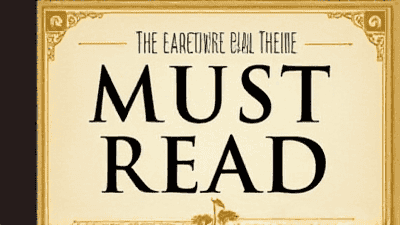
Beyond the Pages: How Books Can Transform Your Life
In an age dominated by fleeting digital interactions and instantaneous information, the unassuming book might seem like an antiquated artifact. Yet, its power to profoundly shape human consciousness and alter life trajectories remains unparalleled. More than mere vessels of data, books serve as silent catalysts for personal revolution, offering not just knowledge, but a nuanced understanding of the world and our place within it. This article delves into the intricate mechanisms through which engaging with literature fosters deep-seated, transformative change.
The historical trajectory of humanity is inextricably linked to the written word, with books serving as the bedrock of knowledge transmission, cultural preservation, and intellectual advancement. Their importance transcends simple education, impacting cognitive development, emotional intelligence, and practical skill acquisition, benefiting individuals, scientific communities, and global societies alike. Current discussions often debate the merits of digital versus print media or the efficacy of speed reading versus deep immersion. However, the consistent value of books lies in their capacity for sustained, focused engagement—a crucial antidote to the fragmented attention prevalent today. Understanding how books cultivate empathy, hone critical thinking, and inspire innovation is key to navigating these advancements and resolving debates about effective learning strategies. What impact would it have on our understanding or practice of personal development and societal progress if we failed to fully comprehend the intricate ways books shape our minds and actions?
The Mind's Metamorphosis

Cultivating Critical Thinking and Empathy Through Narrative Engagement
Reading is far from a passive activity; it is a profound cognitive workout that actively reshapes our neural architecture. When we immerse ourselves in a text, particularly complex narratives or detailed expositions, our brains engage in intricate processes of interpretation, inference, and synthesis. This constant mental exercise strengthens neural pathways associated with language processing, memory, and analytical reasoning, leading to improved vocabulary, enhanced problem-solving abilities, and a more robust capacity for critical thinking. For instance, dissecting the motivations of a literary character or evaluating the arguments in a philosophical treatise compels us to weigh evidence, consider multiple perspectives, and form independent judgments—skills directly transferable to real-world decision-making. Fiction, in particular, plays a crucial role in cultivating empathy through what is known as "theory of mind." By stepping into the shoes of diverse characters, experiencing their joys, sorrows, and dilemmas, readers develop a deeper understanding of human emotions and motivations. This vicarious experience expands our capacity to relate to others, fostering compassion and broadening our worldview beyond immediate personal experiences. Research by Dr. Raymond Mar, a psychology professor at York University, has consistently shown a correlation between reading fiction and higher levels of empathy, suggesting that narrative engagement acts as a simulator for social interaction, honing our emotional intelligence. Non-fiction, conversely, provides direct access to expert knowledge and diverse viewpoints, enabling readers to critically analyze complex subjects, from economic theories to scientific principles. A historical example is Abraham Lincoln, who, largely self-educated through voracious reading, developed a profound understanding of law, philosophy, and rhetoric, skills that were instrumental in his leadership during a pivotal period in American history.
Knowledge to Action
Leveraging Literary Insights for Real-World Competence
Beyond cognitive enhancement, books serve as unparalleled conduits for practical skill acquisition and effective application. Non-fiction, especially, offers structured insights, actionable strategies, and foundational principles across a myriad of domains—from business leadership and financial management to artistic techniques and personal productivity. The process typically involves an information intake phase, where readers absorb new concepts; a conceptual understanding phase, where they connect new knowledge to existing frameworks; and crucially, an application planning phase, where they translate theoretical knowledge into concrete steps. For example, an aspiring entrepreneur might read "The Lean Startup" by Eric Ries, internalizing concepts like Minimum Viable Product (MVP) and validated learning. The transformation occurs not just in understanding these terms, but in actively designing experiments, pivoting strategies based on market feedback, and iterating rapidly in their own venture. Similarly, professional chefs meticulously study cookbooks not just for recipes, but for underlying principles of flavor pairing, technique, and ingredient science, which they then adapt and innovate upon in their kitchens.
Consider the diverse impacts of reading on professional development:
| Skill Area | Primary Benefit from Reading | Example Book/Genre | Real-World Impact |
|---|---|---|---|
| Leadership | Strategic Thinking, Team Management | Biographies, Management Books | Improved team cohesion, more effective decision-making in organizations |
| Problem Solving | Analytical Frameworks, Creative Solutions | Case Studies, Philosophy, Science Fiction | Enhanced ability to dissect complex issues, innovate solutions in various fields |
| Communication | Vocabulary, Persuasion, Clarity | Rhetoric, Literary Fiction, Professional Guides | Better presentations, more impactful writing, clearer interpersonal exchanges |
The data in this table underscores how targeted reading directly translates into tangible improvements in professional and personal competence. Individuals who consistently engage with literature relevant to their fields report higher rates of skill development and career advancement. For instance, a software developer reading "Clean Code" by Robert C. Martin gains not just theoretical knowledge, but immediately applicable principles for writing more maintainable and efficient software. This direct link between absorbed knowledge and its practical implementation highlights books as essential tools for continuous learning and professional growth, enabling individuals to not just understand but actively do more effectively in their chosen pursuits.
Soulful Resonance

Navigating Emotional Landscapes and Fostering Resilience
Books offer a unique sanctuary for emotional exploration and personal growth, acting as both mirrors and windows to the human condition. Through stories, essays, and memoirs, readers can safely process complex emotions, develop greater self-awareness, and gain profound insights into their own psychological landscape. When we encounter characters grappling with grief, betrayal, or triumph, we are given a framework to understand and contextualize our own similar experiences. This vicarious emotional processing is deeply therapeutic, validating our feelings and often providing a sense of solidarity that we are not alone in our struggles. For example, a young person facing social anxiety might find solace and practical coping mechanisms in a personal development book focusing on social dynamics, or feel understood by a fictional character who shares similar struggles.
Furthermore, books provide invaluable perspectives on adversity and resilience. Reading accounts of historical figures or fictional heroes overcoming immense challenges can inspire courage and provide models for perseverance. The stoic philosophies explored in works by Seneca or Marcus Aurelius, for instance, offer timeless wisdom on maintaining inner peace amidst external chaos, profoundly shaping an individual's approach to life's inevitable difficulties. By engaging with diverse narratives, readers also cultivate tolerance and understanding towards cultures, beliefs, and lifestyles different from their own, fostering a more inclusive and empathetic worldview. This process helps to dismantle preconceived notions and broadens one's moral imagination. Books, in essence, function as personal growth accelerators, empowering individuals to navigate their emotional landscapes with greater wisdom, build robust resilience against life's setbacks, and emerge with a richer, more compassionate understanding of themselves and the world.
Conclusion
The journey "Beyond the Pages" reveals that books are far more than mere repositories of information; they are dynamic instruments of profound personal transformation. We have explored how reading actively reshapes our cognitive abilities, fostering critical thinking, linguistic prowess, and empathetic understanding through deep narrative engagement. Furthermore, books serve as invaluable guides for practical skill acquisition, translating theoretical knowledge into actionable strategies that empower individuals to achieve real-world competence across diverse domains. Finally, their soulful resonance provides a sanctuary for emotional exploration, cultivating self-awareness, fostering resilience, and broadening our compassionate understanding of humanity. The most critical finding is that reading is an active, multifaceted engagement that directly influences neural plasticity, provides tangible insights for application, and refines our emotional and psychological frameworks. In an increasingly fragmented and superficial world, books remain an irreplaceable resource for fostering depth, perspective, and continuous personal and societal advancement. They are not simply carriers of stories and facts, but architects of the self, quietly but profoundly transforming the human experience.
Looking ahead, the transformative power of books is poised to evolve within a landscape shaped by rapid technological advancements and shifting educational paradigms. We can anticipate future trends such as personalized reading recommendations powered by artificial intelligence, which will tailor literary journeys to individual developmental needs, and interactive storytelling formats that blend traditional narrative with immersive digital experiences. However, challenges persist, including the global struggle against declining attention spans, information overload, and ensuring equitable access to diverse, high-quality literature. Macro scientific policies focused on promoting literacy, investing in public libraries, and integrating reading across interdisciplinary curricula will be crucial in harnessing books' full potential. Interdisciplinary integration, perhaps combining reading with mindfulness practices or leveraging digital annotation tools for collaborative learning, offers exciting prospects. Ultimately, the future impact of books will depend on our collective commitment to fostering a culture of continuous engagement with the written word, adapting to new formats while preserving the core human need for deep, reflective understanding. Ongoing research into the neurobiology of reading and its long-term psychological effects will further illuminate and enhance this timeless pathway to personal and societal enrichment.
Frequently Asked Questions (FAQ)

Q: How can I ensure I get the most transformative benefit from my reading, rather than just passively consuming information? A: To truly transform your life through reading, it's essential to move beyond passive consumption and adopt an active, engaged approach. Firstly, read with a purpose. Before opening a book, ask yourself what you hope to gain from it – whether it's understanding a new concept, solving a problem, or exploring an emotion. This sets an intention that guides your focus. Secondly, engage actively with the text. This means highlighting key passages, annotating margins with your thoughts, questions, or connections to other knowledge. Don't be afraid to fold pages or use sticky notes. For non-fiction, summarize chapters in your own words or create mind maps to consolidate understanding. For fiction, reflect on characters' motivations and themes. Thirdly, practice critical inquiry. Don't accept everything at face value. Ask "why?" or "how?" Challenge assumptions, compare ideas with your own experiences, and seek out contrasting viewpoints. This fosters independent thinking rather than mere absorption. Fourthly, apply what you learn. The true power of transformative reading lies in translating insights into action. If you read a book on productivity, try implementing one technique immediately. If a novel inspires you, consider how its themes relate to your own life and what changes you might make. Finally, discuss and reflect. Talk about what you're reading with others. Debating ideas helps solidify your understanding and exposes you to new interpretations. Regularly reflect in a journal about how a book has changed your perspective or influenced your behavior. This multi-faceted approach transforms reading from a mere hobby into a powerful tool for personal growth.
Q: Is fiction or non-fiction more impactful for personal transformation, and why? A: Both fiction and non-fiction are profoundly impactful for personal transformation, often in complementary ways, making it less about which is "more" impactful and more about what each uniquely offers. Non-fiction primarily transforms by directly imparting knowledge, skills, and actionable strategies. It provides clear frameworks for understanding complex subjects, offers expert guidance for personal and professional development, and introduces new perspectives based on research and empirical evidence. For instance, a self-help book might provide specific techniques for improving communication, a history book might reshape your understanding of geopolitical events, or a business book could offer a blueprint for entrepreneurial success. Non-fiction's strength lies in its explicit instruction and its ability to equip you with concrete tools to navigate the world. Its impact is often direct and measurable, leading to tangible changes in behavior or understanding.
Fiction, on the other hand, transforms through immersion, empathy, and indirect learning. By stepping into the shoes of diverse characters and experiencing their worlds, fiction cultivates empathy (your "theory of mind"), helping you understand different perspectives, cultures, and emotional landscapes. It allows you to explore complex moral dilemmas and human experiences in a safe, vicarious way, which can broaden your emotional intelligence and refine your values. Fiction improves critical thinking by requiring you to interpret ambiguous situations, infer meaning, and understand subtext. A novel might not tell you how to solve a problem, but it can deepen your understanding of human nature, making you a more compassionate, insightful, and adaptable individual. Ultimately, a balanced diet of both fiction and non-fiction creates the most holistic and powerful personal transformation, addressing both the practical and the profound aspects of human experience.








